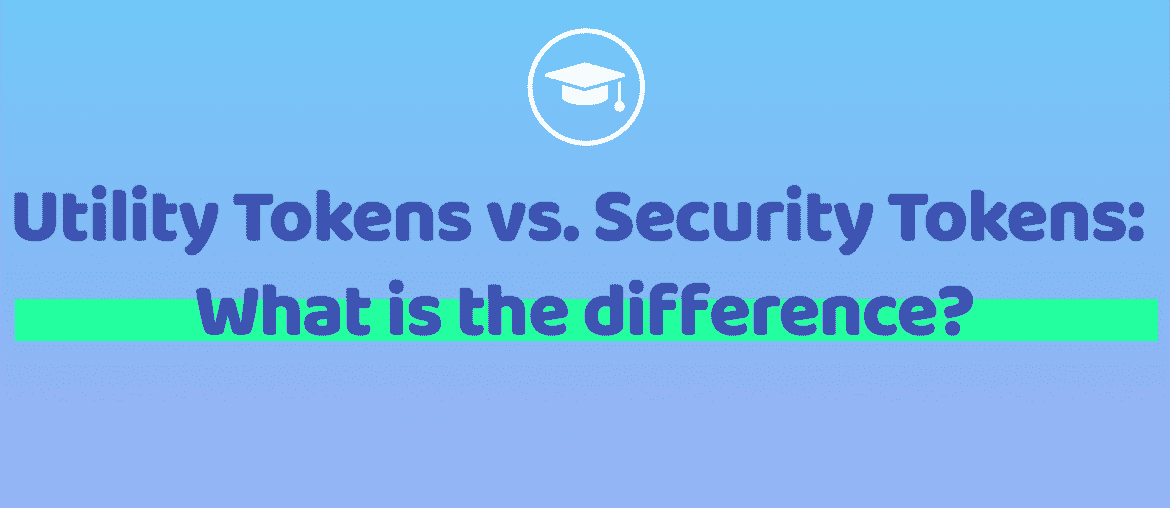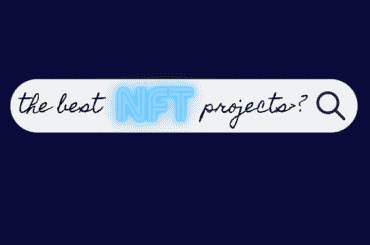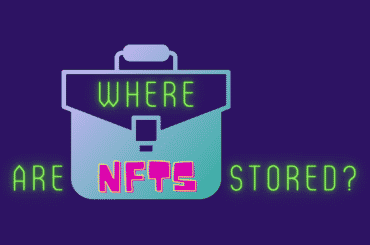Coins, and crypto, and tokens, oh my!
Whether you are just familiarizing yourself with cryptocurrency, or are a pro, the number of unique phrases in this relatively new marketplace are enough to make your head spin.
To add to the challenge, after a lifetime of operating in one type of currency, it makes it even harder to learn an entirely new system. While crypto and the U.S. Dollar often use similar terms, they don’t typically mean the same thing. A coin isn’t a coin. A market isn’t a market.
Depending on the game you are playing, the rules of that game change, and so does the vocabulary.
But, have no fear. We are here to break down these technical terms and help you to better understand crypto and all that it entails. Let’s take a deeper look at tokens. And no, I don’t mean we are going to the arcade. Many types of tokens are discussed in the cryptocurrency marketplace, but today we will analyze two main categories: Utility tokens and security tokens.
Table of Contents
A Coin vs. A Token
Though tokens and coins all live under the cryptocurrency label, all tokens are not created equally. First of all, tokens and coins aren’t even the same things, and while often used interchangeably in context, they have unique definitions.
What is a token?
In terms of the crypto space, tokens and coins are not the same. A token represents the value of something else. If you’ve ever been inside a Chuck E. Cheese arcade, you may be familiar with the round, gold tokens distributed to young game players.
These tokens represented, at least back in the day, one quarter in financial value. However, you could not put a quarter into the skeeball machine.
Instead, mom and dad had to bring you over to the token dispenser. They might put a single, paper dollar bill into the slot, and out would come four, gold tokens with a goofy-looking mouse on the front. These tokens represented a quarter and were the only acceptable way to pay for gameplay on any of the game floor games.
That value, of one-quarter of one dollar, was set by Chuck E. Cheese. If you walked out of the arcade with a token still in hand, you could not pay for a can of Coke with it at the next store. Outside of the arcade, it virtually had no value.
How does a coin differ from a token?
A coin, however, represents currency. Whether you have a quarter in Chuck E. Cheese or in the 7-11, it is still worth 25 cents. The value doesn’t exist solely within one establishment. It is an accepted value across the country’s market.
Typically, a token, which may in fact have value, is used to represent more complicated transactions. Because it can represent nearly any value, set by the organization issuing the token, it can be used in a wider variety of scenarios, especially when it comes to crypto.
A coin, on the other hand, has an equivalent cash value. No matter where you are (in that country accepting it or by converting it into an alternative country’s currency), it has some financial value that is understood by others.
A coin in the crypto space is one that runs on its native blockchain. Tokens, however, run on existing blockchain technology.
Types of Coins and Tokens
Bitcoin and Ethereum are coins. They each operate on their own, native blockchain. Currencies like Uniswap or Chainlink are tokens. They are both able to be used on the Ethereum blockchain but are not native to its technology.
Tokens give users a way to talk apples and oranges but have a value that is consistent. If I offer three apples for two oranges, you have no true way of knowing if that is a fair and balanced trade.
However, if we know that three apples is the going rate for one token, and two oranges are the value of one token, then this is a fair and equal trade. No one lost any value, and no one gained any in this example transaction.
A Security Token
In its simplest terms, a security token is a representation of ownership in a company that does business using blockchain technology. A security token is not named because of its secure nature. It is a token that derives value from an external, tradable asset such as a stock or real estate.
The security token can represent a physical or digital asset. In the use of these tokens, there is an external asset involved and not just an innate value of a token. Remember, outside the token (or arcade in our previous example), the item has no value (can’t buy a Coke with a Chuck E. Cheese token at the 7-11).
Three Types of Security Tokens
Within the security token label, there are three, unique types of security tokens. Those three categories include:
- Equity tokens
- Debt tokens
- Real asset tokens
While each of the three backs an asset, the asset type and way in which it is managed varies.
Equity Tokens
An individual equity token represents the value of the share issued by a company. Instead of certifying ownership on paper certificates that you may be granted in stock, equity tokens are recorded on the blockchain.
Debt Tokens
A debt token represents a debt or a loan, much like an IOU. It could be for real estate mortgages or corporate bonds and can be used by individuals or major businesses.
Real Asset Tokens
A real asset token represents value in one, specific asset. These can include anything from a piece of art to a piece of real estate. The price set to the token reflects the worth of the particular asset.
Uses of the Security Token
Most often, a security token represents partial ownership in a business. Typically, these businesses are technology-based organizations, as they are operating at least a majority of their transactions on a blockchain. The token represents ownership in a tech business that you hope will show long-term growth.
Just like stocks going public, ownership in a tech company operating on blockchain technology is a hope for the future. Buyers are hoping that the low cost they are purchasing a token for today will increase massively in the long run.
These tokens are issued by the business itself, and, no matter what they are technically backing, are truly only worth something within that issuing business. For these reasons, other names for a security token are “investment tokens.”
Benefits of a Security Token
There are many reasons investors and companies alike are favoring a security token over the more traditional methods of doing business in the stock exchange.
A Faster Method To Do Business
For example, the business is faster. While a traditional securities exchange may take a few business days to clear, the exchange of a token can happen in minutes.
A Lower Cost
These efficiencies also save on the cost of doing business and the resources required to do so, including manpower, computer power, and the costs associated with each.
Bigger, Better Market
Another major plus of the security token is that it offers a global market, which is in operation 24/7. There is no need to wait for markets to open and pause as they close. Time zones are no longer a hindrance, nor are bank holidays.
Interoperation of Assets
No matter the assets, tokens bring the possibilities of differing values to equalize with the value of a token. Real estate that Joe owns may be worth 1,000 tokens.
The percent of business that Jane owns is worth 1,000 tokens. Though real estate is not the same as business ownership, the token balances the two, making it possible to compare one to another.
In simpler terms, it is the age-old apples to oranges analogy once again. Operating on a decentralized security network, security tokens offer an opportunity to trade varying assets in the same place, even though the assets themselves are not the same.
Because a blockchain operates without a centralized authority or entity in charge of it, the peer-to-peer network never sleeps, and never fully shuts down.
Programable and Automated
A major focus on the security token is also overseeing governmental regulations. In terms of security tokens, the offerings are often referred to as STO, which stands for security token offering.
Companies must register an STO, and they must remain in a regulated environment, regardless of what they represent. Falling into the STO category also means that the relevant governing authorities are in charge of the tokens at the end of the day.
Investors and companies must meet all the legal requirements. Additionally, STO participants must be fully compliant or accredited to buy and sell security tokens.
With the use of blockchain technology, this process may soon be an automated feature. Programming a blockchain to automatically comply with governmental regulations would ensure the process is followed to a T, and no errors would occur.
Much like the automated smart contracts of the blockchain, which operate under an “If/Then” concept (meaning If X occurs, then Y will happen), the regulations could be programmed so that if regulations are met, then the blockchain is in compliance, and tokens may be transferred.
A Utility Token
Unlike the security token platforms, which allow a token to represent another asset, the utility token has a value in what it allows its user to do or have. These utility tokens can be made to enable future access to a program, allow for preferential treatment on the platform, or create special services or perks others on the network cannot have or access.
Only utility token holders allowed to own a specific gaming character is an example of how a utility token can work.
Consider the utility token to be much like a VIP pass. You may gain access to the same concert (in other words many users may be on the network), but you aren’t in the front-row seats, and you certainly aren’t going backstage to meet the band.
If you had a special VIP pass (i.e. a utility token), you would be granted access to these perks, and not just be wading through the crowds of the general admissions, standing-room-only, pit of fans.
In the same way, a utility token will enable users access as predetermined by the issuing company.
Who’s The Boss?
A major difference between a utility token and a security token is who is ultimately in charge of the regulations. While both utility and security tokens are created, issued, and exchanged within a unique business operating blockchain technologies, at the end of the day, a security token is governed by the securities and exchange commission, and all the regulatory requirements must be followed.
Unlike security tokens, a utility token operates on rather “anything goes,” open parameters. No specific governing body is charged with its oversight, so the utility token is whatever the issuing business wishes for it to be or represent.
Privilege, But Not Ownership
Where a security token, much like a stock option, represents part ownership in a business operating on the blockchain, the issuing of a utility token does not. Utility tokens are about privileges and do not allow a token’s owner any percent of ownership in the business itself. Owners of a utility token are not granted voting rights. The utility token is simply a digital representation of a VIP pass.
Yes, the owner has special access, but that does not mean that they now own a part of the band. They simply get to meet them up-close. Federal laws do not need to be applied to this process, and there are no preset security regulations that must be followed, as both are required with a security token.
Due to this fact, utility tokens are not considered to be ownership. They are viewed more as a promotional item or perk and not an actual investment. A business can create utility tokens for nearly any benefit they want to offer. Utility tokens serve as a reward but do not represent overall ownership in digital assets. Utility tokens qualify token owners to special products or services from the company issuing them.
Helping a Business Grow
Utility tokens are often utilized as an “Initial Coin Offering” or ICO. An initial coin offering is an unregulated means by which a cryptocurrency venture can gain funding. The business founders can gain funds not only without the oversight of government agencies but also without giving up ownership in their company or the company’s decision-making process.
Owners/founders of a new company would retain these rights, and not have to give them away in order to establish funds for the business. Owners of an ICO do not enjoy the privileges of the voting system, nor gain additional coins for having purchased the initial coin offering.
While both security tokens and utility tokens can help a business to grow, a security token is an investment, which may grow and produce returns, allowing ownership and possible voting rights.
However, a utility token owner would be contributing to a business venture without the hopes of a return, does not imply ownership, and does not allow for any voting rights in the future.
Examples of a Utility Token
Currently, one company called FileCoin (FIL) is an example of how a utility token is currently being used in the cryptocurrency marketplace. With FIL, the utility token is purchased, with funds going to the business. However, instead of ownership, users are offered space on the company’s decentralized cloud storage platform.
The Howey Test
If there is confusion about whether a specific token is a security token or a utility token, there is a test in place to help you (and the U.S. government) determine which it is.
A Step Back In Time
This test, dubbed the Howey Test, was established by the U.S. Supreme Court in 1946. If the token “passes” the Howey Test, it is labeled as a security token. As such, the token must be registered with the U.S. Securities and Exchange Commission (SEC).
It doesn’t take an established historian to guess that the case was not about cryptocurrency. Instead, the case was was the SEC vs. W.J. Howey Co. about whether certain transactions constituted as “investment contracts” within the meaning of the Securities Act of 1933.
Given the timeline, as you can imagine, this didn’t have anything to do with blockchains or the world wide web. Instead, the supreme court was debating over land investment contracts. Regardless, the same rules apply, whether one is investing with land or tokens.
Four Criteria of an Investment Contract
Within the test, resulting from the historic case, the courts established that there were specifically four criteria that must be met in order for a transaction to qualify as an investment contract:
- There is an investment of money or anything of monetary value in the exchange.
- It is a common enterprise.
- There is an expectation of later profit.
- It is derived from the efforts of others.
If the token in a given transaction does in fact meet these parameters, it is an investment, and thusly is subject to the rules of the U.S. securities laws, and would be considered a security token.





